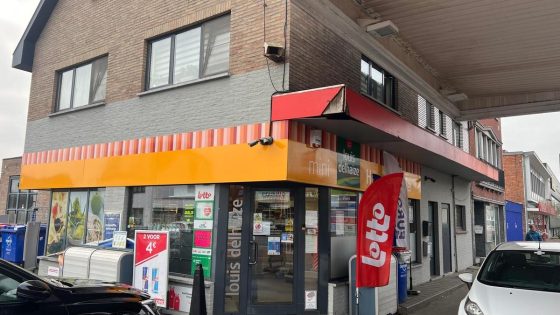A troubling armed robbery at an Esso tank station in Heusden-Zolder has raised serious concerns about safety and substance abuse in Belgium. On 4 February 2025, a man stormed into the station wielding an alarm pistol, threatening the attendant and stealing the cash register contents. This incident, followed by a shooting spree on the E313 highway the next day, highlights a growing issue with criminal acts linked to addiction.
- Man overvalt tankstation met alarmpistool
- Pompbediende blijft traumatisch en vraagt schadevergoeding
- Verdachte vuurt schoten in lucht op E313
- Politie koppelt verdachte aan beide incidenten
- Officier vraagt drie jaar celstraf
- Advocaat pleit voor begeleiding en opschorting
During a hearing on 2 June 2025, the 20-something defendant admitted his actions were influenced by cannabis and alcohol abuse. He expressed regret but faced serious charges, including a demand for a three-year prison sentence. The attendant, now working elsewhere and undergoing psychological support, suffered trauma and sought compensation for the ordeal.
What does this case reveal about the intersection of crime and addiction in Belgium? And how should the justice system balance punishment with rehabilitation? These questions are central as the court prepares to deliver its verdict on 16 June 2025.
This case raises important issues about criminal responsibility and addiction. Should courts prioritize strict sentencing or focus more on rehabilitation? Key points include:
- The defendant’s substance abuse played a major role in his actions, as he himself acknowledged.
- The victim suffered lasting psychological trauma, highlighting the human cost of such crimes.
- Authorities used surveillance technology to link the suspect to multiple offenses, demonstrating effective law enforcement.
- Legal representatives debated between incarceration and conditional sentences emphasizing treatment.
As the June 16 verdict approaches, Belgian society must consider how best to support victims and rehabilitate offenders. Will this case prompt stronger measures against substance-driven crimes, or encourage more comprehensive addiction support? The outcome could shape future policies on crime and recovery.































